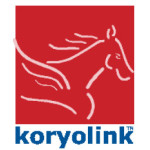 Full-year results for Koryolink, North Korea’s only 3G cellular carrier, have been announced by Egypt’s Orascom Telecom. Orascom holds a 75 percent stake in Cheo Technology, which is the company that operates the Koryolink service. The remaining 25 percent stake is held by the government-run Korea Posts and Telecommunications Co. (KPTC).
Full-year results for Koryolink, North Korea’s only 3G cellular carrier, have been announced by Egypt’s Orascom Telecom. Orascom holds a 75 percent stake in Cheo Technology, which is the company that operates the Koryolink service. The remaining 25 percent stake is held by the government-run Korea Posts and Telecommunications Co. (KPTC).
The results show continued strong performance for the unit, which has been trying to expand use of the service by offering lower prices.
You can read the headline take in this story: North Korea’s Sole 3G Operator Sees Users and Revenue Surge, PC World.
The network expansion has continued and the company says: “Koryolink’s network currently has 333 on air base stations covering Pyongyang as well as 14 other main cities (mainly Wonsan, Hamhung, Pyongsong, Anju, Kaechon, Nampo, Sariwon & Haeju) as well as 22 highways. The network supports a variety of services in addition to voice such as video call, SMS, MMS, voice mail, WAP and HSPA. As of the end of 2010, koryolink has managed to cover 91% of DPRK population.”
I’ve produced a few graphs that detail the current trends at Koryolink.
First, the total subscriber count, which is starting to look a little like an exponential curve.
In terms of penetration, the subscriber numbers mean 1.8 percent of the population of 24 million people have a cell phone. That obviously leaves a lot of people without one, but how many can afford a phone and subscription is an important question. Koryolink has already had to introduce a cheaper tariff to attract more users.
Here’s the quarterly subscription growth. The effects of the cheaper tariff in the second quarter can be seen.
And the quarterly revenue figures:
And the quarterly EBITDA:
Orascom Telecom’s full-year earnings report, which includes all this data, can be found in PDF form on its website.

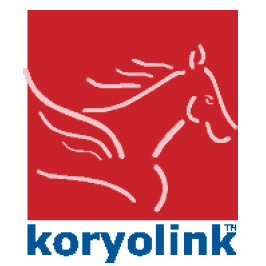
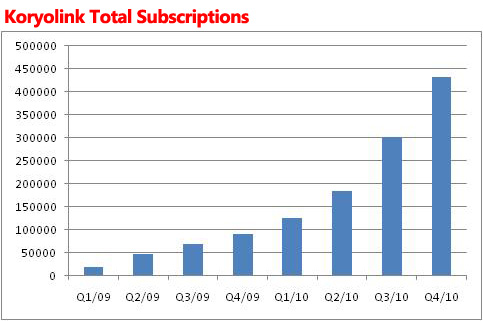
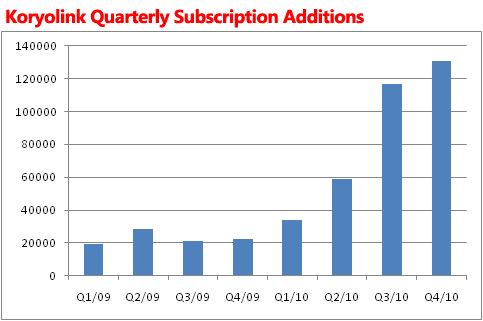
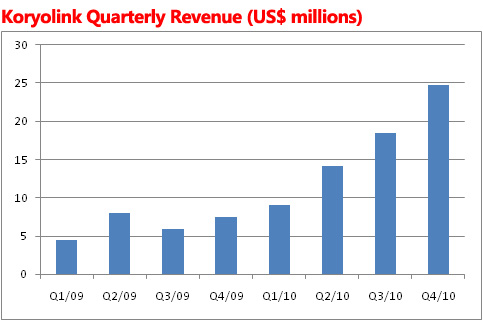
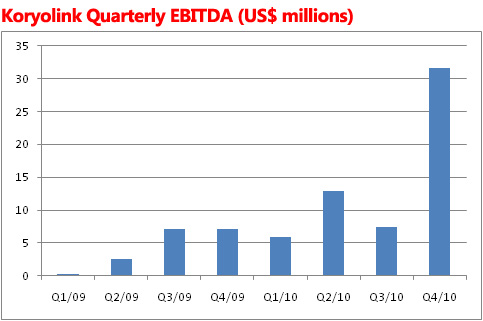


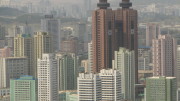
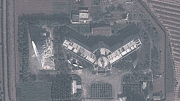
430,000 users in Pyongyang and other cities – the Govt can never again pull the plug on the mobile network without seriously pissing off everyone in the elite (and a growing section of the not-so-elite).
Also thought it was worth noting that video-calling was launched in Q3 2010 to “high demand… especially in the youth segment.” As a result koryolink intends to launch further value-added 3G services in 2011. Can only be a good thing.
Finally, with regards to the “shortage in handset supply that was continuously caused by the handset distributor”, how frustrating that there are literally millions of no-longer-used but perfectly fine handsets with hangul keys sat gathering dust just south of the DMZ.
This is sad. A website that volunteers to be an uncritical mouthpiece of a publicly traded Egyptian company which reports *an exponential growth* in telecommuications business in the most closed off society anywhere and the single poorest country in the whole world where an average monthly wage is 4000 NK Won and a kilo of rice costs 1500 in the market. Do some fact check, will you?